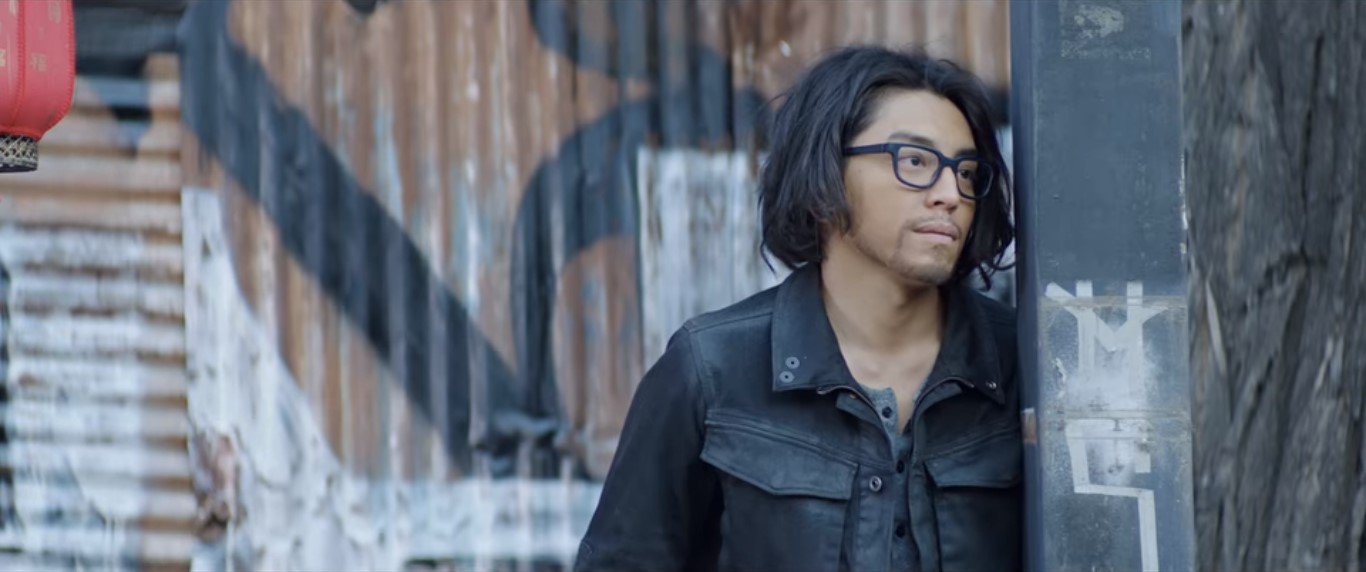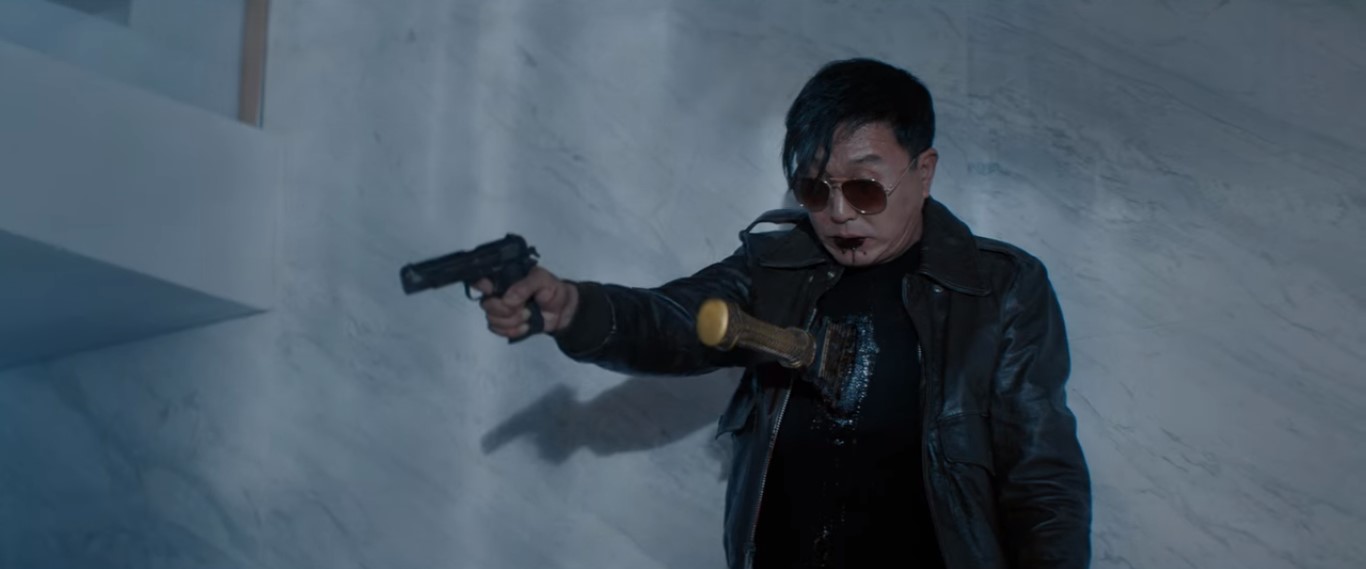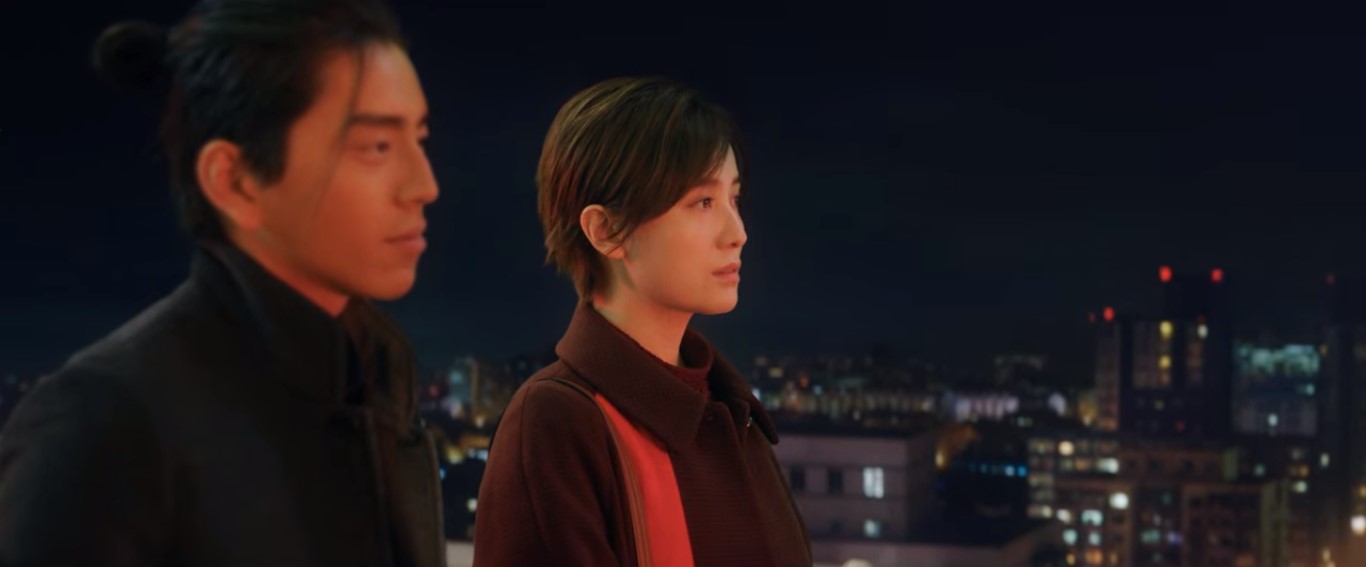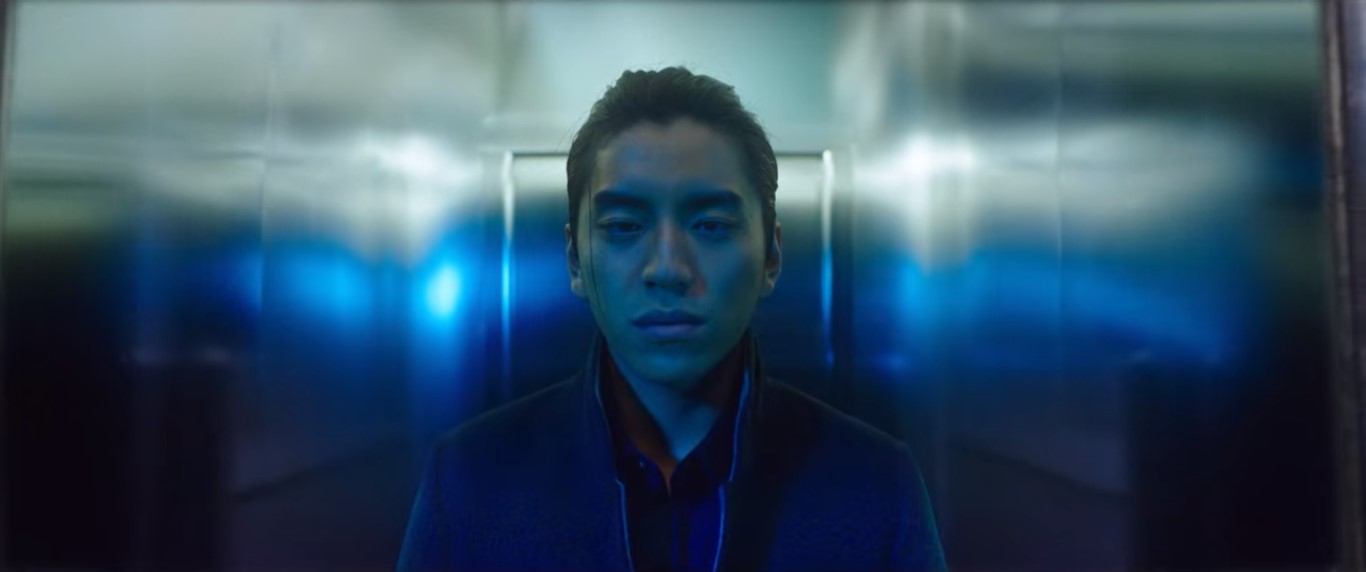Written and directed by Chinese filmmaker Zhang Chong, ‘Super Me’ is a psychological horror-thriller that blends elements of the natural and supernatural to create an ambiance of suspicion and intrigue. The lucid story follows struggling screenwriter Sang Yu as he discovers a way to get rich fast, but the riches do not come without a cost.
As Sang Yu continues to pay the price with his own life as well as those dear to him, we as the audience are made to question the credibility of the rags-to-riches story that is so carefully constructed throughout the film. The whole film progresses with a dream-like discordance, and the ambiguity of the cryptic ending does not help. If you can’t get your head around the finality of the film, let us help you get to the bottom of this. SPOILERS AHEAD.
Super Me Plot Synopsis
The film begins with a seminar talk given by a psychoanalyst. The rest of the story pans out like a lucid dream, blending dream-like sequences with reality, while the reality is often hard to grasp. In the exposing scenes, aspiring screenwriter Sang Yu (Darren Wang) is chased by a ghastly demon in the metro. We are made to think that his insomnia is conjuring these animate nightmares, which is also resulting in his writer’s block.

While his mental health becomes worse with tormenting visions, he finds it hard to make ends meet. Moreover, his employer, San, pressurizes him to finish the script that he intends to write, and things come crumbling down for Yu. After being kicked out of his apartment for not paying rent, he ends up in a restaurant, where the same specter haunts him. Hitting rock bottom, he tries to commit suicide, but the pancake vendor talks him out of it.
Following the vendor’s suggestion, Sang Yu finds out that he can use his nightmares to his advantage. He discovers that he can smuggle expensive artifacts from his dream into waking life. Using this method more than once, he becomes rich in no time. After going through a complete makeover, he uses some of the money to buy the coffee shop owned by his girl crush Hua’er (Song Jia). As the rags-to-riches story unfolds itself, Sang Yu becomes something of a larger-than-life figure, but affluence comes at a cost.
In the second half, Sang Yu is kidnapped by a gangster named Qiang Ge (Wu Gang), which is where the story begins to morph, giving way to mixed signals and conflicting suggestions. While unconscious, Sang Yu emerges in the shadow reality as the demon and permeates into the other realm to eliminate the ruthless gang members. After killing Ge and other members, the demon points the gun at Sang Yu. Then, Yu wakes up in the same scene where the demon previously attacked him with the sword, and the narrative is turned on its head.
Super Me Ending: Has Sang Yu Been Dreaming All This While?
Sang Yu suffers from insomnia, which has been made apparent from the beginning moments of the film. However, in the early sequences, the dream and the real are kept separate, never converging outside the mind of the protagonist. But as the story progresses, the two realms are increasingly juxtaposed, which confuses the audience. When Sang Yu ends up in the convenience store, he does not have a place to stay or money to feed himself. He is also chased by his seemingly real agent and the supernaturally equipped hooded specter while his insomnia gets worse.
All of these troubles take a toll on him, and he is left to scavenge for food. He meets Hua’er in front of the shop, who seemingly attempts to help him. But then, the demon appears with a heavy sword and attacks Yu. Taking suggestions from the pancake vendor, he tries to convince himself that he is dreaming, and the demon disappears while leaving the sword behind. After selling the sword for a hefty amount of money, Sang Yu’s dream exploits become more and more rewarding.

With the money, Sang Yu gets a new makeover and catches up with San. After spending the money here and there, Sang Yu visits the coffee shop of Hua’er and gets to know that Hua’er is about to sell the shop. He offers to buy the shop and attempts to woo Hua’er by taking her to expensive restaurants and buying expensive cars. He makes her think that he is an acclaimed screenwriter who has denied being credited until now.
But the story really kicks off when the protagonist is abducted by the gruesome gangster Qiang Ge. Suspecting that Yu has more money than he can imagine, Ge becomes greedier and takes both Yu and Hua’er hostage. Ge kills both, and Sang Yu becomes incarnated in a shadow dimension as Skar. The two realms are again conjoined when Skar breaks into this dimension and goes on a killing rampage. But, the story does not end just yet.
The story returns to the convenience store, this time taking a realistic avenue, as Sang Yu is tended by Hua’er. Hua’er also offers Yu a job at her café, and he cannot be more grateful. He comes across some money from San, who has sold the script written by Yu to a producer. The life of Sang Yu seemingly gets back on track. But there remains another twist reserved for the final moment. Yu visits the pancake vendor, who returns the dream money that Yu previously gave him. Afterward, the vendor divulges that he knows the origin of the money and reveals a scar. The layer of reality burns away, unearthing the shadow realm that Yu would see in his dreams.

The whole movie unfolds like a dream, mingling elements of horror, thriller, romance, and an overarching rags-to-riches story told by an unreliable narrator. The image of the cave shown in the beginning symbolizes the abysmal depths of Yu’s mind. In a crucial segment of the film, Yu attends a seminar on psychology. The speaker reiterates the tripartite structure of the mind as formulated by Sigmund Freud and Carl Jung. The suggestion is that the demon Skar that haunts Yu is his id, the unconscious part of the mind that comprises latent fears and desires.
The ghastly appearance of the demon is the manifestation of Yu’s fears, while the expensive antiques left by the demon are the incarnation of Yu’s desires. When Hua’er offers Yu a job, his masculine ego is hurt, and he dreams about getting rich and paying back the debt. When his ego spirals out of control, his super-ego appears in the form of the ruthless gangster to keep him in check, but in the finality of events, his id overpowers both.
Yu may be suffering from schizophrenia, as he suspects at the beginning of the film. He uses his imagination as a coping mechanism to hide from reality until the imagination becomes strong enough to erode the remnants of reality itself. The final scene, therefore, is also questionable since the kind vendor may as well be a figment of his dreams. Alternatively, it may be that the supernatural elements of the story are as real as the reality itself, and as Yu himself is an aspiring screenwriter, the lucid story makes a statement about the power of cinema to transport the audience to a dream world guided by the projection of moving images on a blank screen.
Is Hua’er Alive?
When captive Yu and San are taken to Yu’s apartment by Qiang Ge and his gang, Hua’er arrives at the reception with the wish to meet Sang Yu. Yu is desperate to save Hua’er, and he tries to convince her that he is hiding from her. But Hua’er senses trouble and comes up to meet him. She is taken hostage by the thugs, and Qiang Ge failingly tries to pit the lovers against each other.

When the hostages try to flee the scene, the goons capture them and seemingly kill them. When Skar emerges from the other world, Hua’er is seemingly dead, and to be sure, Ge puts some more bullets in her body before dying himself. But in the next scene, we see Hua’er rescuing Yu, feeding him, and even offering him a job. Yu gets back on his feet with the help of Hua’er, and it seems that Hua’er is still very much alive and kicking as she takes Yu under her wing.
Is Sang Yu Really Rich?
All of Sang Yu’s dream-world riches vanish when he wakes up in front of the store. But in the final scene, the food vendor gives Yu his money back and shows his scars, and the audiences are led to think that maybe Yu’s dreams have some truth in them. But that money may as well be a figment of Yu’s dreams, as the vendor himself.
Even if that is the case, the money given to Yu by San should be real. In the ending moments, San discloses that he has sold the script written by Yu to a producer, and he gives the screenwriter’s share to Yu, which is a significant amount of money. In that case, even if the artifacts are imaginary, one can conclude that Sang Yu is quite a rich person by the end of the film.
Read More: Best Chinese Films of All Time

